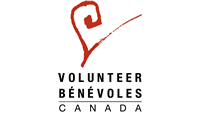Definitions
Definitions: the following definitions were developed by the Inclusive Communities Project Advisory Group, Volunteer Canada 2020 to provide a framework of understanding for their work.
Diversity is related to recognition of the range of human differences individual identity and the complex characteristics that form one’s identity including but not limited to race, ethnicity, national origin, language, age, gender, gender identity, sexual orientation, social class, education status, marital status, and mental and physical ability and attributes, religious or ethical values system, and political beliefs. Identity is multifactorial, fluid and contextual.
Equity is based on the understanding that historic and societal factors have created many forms of inequality which prevent equal access and experience to opportunities and resources for members of society based on identity. Equity is the understanding that efforts must be made in all areas of society to ensure fair treatment of individuals and equal access to opportunities and resources and to identify and reduce the barriers that prevent such equal access.
Inclusion is the authentic, intentional, ongoing effort to ensure that diverse individuals, and those who are or have been excluded, fully participate in all aspects of organizational work, including decision making processes and access to all experiences, opportunities, activities and resources. It also refers to the ways that diverse participants are valued as respected members of an organization and/or community.

